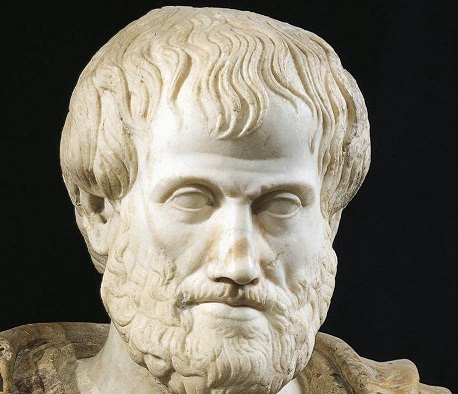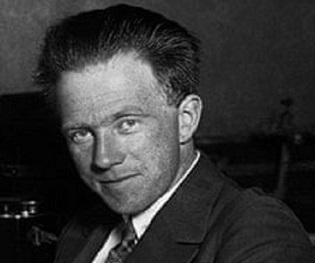|
home | what's new | other sites | contact | about |
|||||||
|
Word Gems exploring self-realization, sacred personhood, and full humanity
Quantum Mechanics
return to "Quantum Mechanics" main-page
from Science News, Tom Siegfried Quantum mysteries dissolve if possibilities are realities. Spacetime events and objects aren’t all that exists, new interpretation suggests. Editor's note: Consider the term "new." There's nothing new about it. It's what Heisenberg and Bohr made claim to very early on. It didn't take long back then for the cheerleaders of Newtonianism to come up with all sorts of variant quantum interpretations, which, in effect, re-enthroned Newton as patron saint. What is "new" today is a reluctant acceptance, in a beginning way, that consciousness, not matter, is the ground of reality.
When you think about it, it shouldn’t be surprising that there’s more than one way to explain quantum mechanics… [In a new paper] three scientists argue that including “potential” things on the list of “real” things can avoid the counterintuitive conundrums that quantum physics poses… At its root, the new idea holds that the common conception of “reality” is too limited. By expanding the definition of reality, the quantum’s mysteries disappear. In particular, “real” should not be restricted to “actual” objects or events in spacetime. Reality ought also be assigned to certain possibilities, or “potential” realities, that have not yet become “actual.” These potential realities do not exist in spacetime, but nevertheless are “ontological” — that is, real components of existence. “This new ontological picture requires that we expand our concept of ‘what is real’ to include an extra-spatio-temporal domain of quantum possibility,” write Ruth Kastner, Stuart Kauffman and Michael Epperson. Considering potential things to be real is not exactly a new idea, as it was a central aspect of the philosophy of Aristotle, 24 centuries ago.
An acorn has the potential to become a tree; a tree has the potential to become a wooden table. Even applying this idea to quantum physics isn’t new. not just a list of any old possibilities, but math-pared ones - one of which would become an actuality; this relative certainty, Heisenberg argues, is to be counted as an aspect of reality Werner Heisenberg, the quantum pioneer famous for his uncertainty principle, considered his quantum math to describe potential outcomes of measurements of which one would become the actual result. The quantum concept of a “probability wave,” describing the likelihood of different possible outcomes of a measurement, was a quantitative version of Aristotle’s potential, Heisenberg wrote in his well-known 1958 book Physics and Philosophy. “It introduced something standing in the middle between the idea of an event and the actual event, a strange kind of physical reality just in the middle between possibility and reality.” In their paper, titled “Taking Heisenberg’s Potentia Seriously,” Kastner and colleagues elaborate on this idea, drawing a parallel to the philosophy of René Descartes. Descartes, in the 17th century, proposed a strict division between material and mental “substance.” Material stuff (res extensa, or extended things) existed entirely independently of mental reality (res cogitans, things that think)… Kastner and colleagues also reject Descartes’ res cogitans. But they think reality should not be restricted to res extensa; rather it should be complemented by “res potentia” -- in particular, quantum res potentia, not just any old list of possibilities. Quantum potentia can be quantitatively defined; a quantum measurement will, with certainty, always produce one of the possibilities it describes… If quantum potentia are in some sense real, Kastner and colleagues say, then the mysterious weirdness of quantum mechanics becomes instantly explicable. You just have to realize that changes in actual things reset the list of potential things. Consider for instance that you and I agree to meet for lunch next Tuesday at the Mad Hatter restaurant… But then on Monday, a tornado blasts the Mad Hatter to Wonderland. Meeting there is no longer on the list of res potentia; it’s no longer possible for lunch there to become an actuality. In other words, even though an actuality can’t alter a distant actuality, it can change distant potential… Reality is not necessarily what humans think it is or would like it to be. Many quantum interpretations have been motivated by a desire to return to Newtonian determinism, for instance, where cause and effect is mechanical and predictable, like a clock’s tick preceding each tock. But the universe is not required to conform to Newtonian nostalgia. And more generally, scientists often presume that the phenomena nature offers to human senses reflect all there is to reality. “It is difficult for us to imagine or conceptualize any other categories of reality beyond the level of actual - i.e., what is immediately available to us in perceptual terms,” Kastner and colleagues note. Yet quantum physics hints at a deeper foundation underlying the reality of phenomena - in other words, that “ontology” [the study of being or 'what is'] encompasses more than just events and objects in spacetime… Kastner and colleagues point out that the motions of the planets in the sky baffled ancient philosophers because supposedly in the heavens, reality permitted only uniform circular motion… Expanding the boundaries of reality allowed those motions to be explained naturally. Similarly, restricting reality to events in spacetime may turn out to be like restricting the heavens to rotating spheres. Spacetime itself, many physicists are convinced, is not a primary element of reality but a structure that emerges from processes more fundamental. Because these processes appear to be quantum in nature, it makes sense to suspect that something more than just spacetime events has a role to play in explaining quantum physics… [Just because we can't imagine something doesn't mean it isn't true.] Kastner and colleagues cite the warning issued by the late philosopher Ernan McMullin, who pointed out that “imaginability must not be made the test for ontology.” Science attempts to discover the real world’s structures; it’s unwarranted, McMullin said, to require that those structures be “imaginable in the categories” known from large-scale ordinary experience. Sometimes things not imaginable do, after all, turn out to be real…
|
|||||||
|
|

